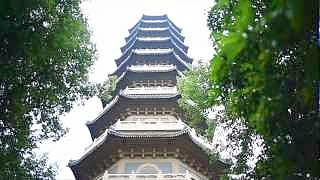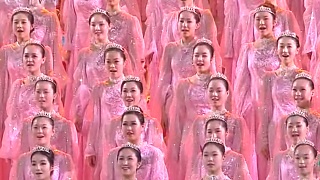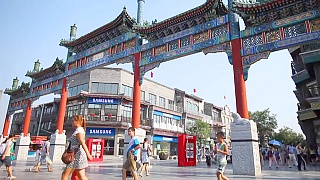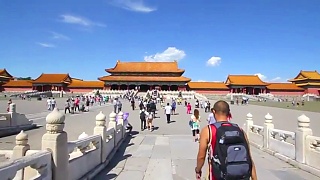Summer 2012.
[640],widescreen=true,shadow=true,start=5,stop=Shanghai is one of China's most dynamic and cosmopolitan cities, blending a rich history with modern skyscrapers and vibrant culture. Here's what you need to know as a tourist visiting Shanghai:
Historical and Cultural Landmarks:
The Bund: This iconic waterfront promenade along the Huangpu River features colonial-era buildings on one side and futuristic skyscrapers on the other, offering stunning views of Shanghai's skyline.
Yu Garden: Dating back to the Ming dynasty, Yu Garden is a classical Chinese garden with pavilions, ponds, and rockeries. The nearby Yu Garden Bazaar is a great place to shop for souvenirs and traditional crafts.
Shanghai Museum: Home to an extensive collection of Chinese art and artifacts, including bronzes, ceramics, paintings, and calligraphy, the Shanghai Museum is a must-visit for history and art enthusiasts.
Jing'an Temple: One of Shanghai's most famous Buddhist temples, Jing'an Temple is known for its beautiful architecture, peaceful atmosphere, and towering golden Buddha statue.
Modern Attractions:
Shanghai Tower: Ascend to the observation deck of this iconic skyscraper, the tallest in China and the second-tallest in the world, for panoramic views of the city.
The Oriental Pearl TV Tower: Another iconic landmark, this futuristic tower offers observation decks, a glass-bottomed skywalk, and a revolving restaurant.
Shanghai Disneyland: Located in the Pudong district, Shanghai Disneyland offers a magical experience for visitors of all ages with its themed lands, attractions, and entertainment.
Shopping and Entertainment:
Nanjing Road: One of the world's busiest shopping streets, Nanjing Road is lined with department stores, boutiques, and restaurants. Don't miss the nearby pedestrian-friendly Nanjing Road East, known for its lively atmosphere and street performers.
Xintiandi: This upscale shopping, dining, and entertainment district features a mix of traditional Shikumen-style buildings and modern amenities, making it a popular destination for locals and tourists alike.
French Concession: Explore this historic neighborhood known for its tree-lined streets, charming cafes, boutiques, and art galleries.
Culinary Delights:
Shanghai Cuisine: Sample local specialties such as xiaolongbao (soup dumplings), shengjianbao (pan-fried dumplings), and Shanghai-style noodles.
Street Food: Wander through the city's bustling food markets and snack streets to taste a variety of street foods, from savory pancakes to grilled skewers.
Practical Tips:
Transportation: Shanghai has an efficient public transportation system, including the subway, buses, and taxis. Consider purchasing a rechargeable transportation card for convenience.
Language: While Mandarin is the official language, English is widely spoken in tourist areas, hotels, and restaurants.
Weather: Shanghai experiences four distinct seasons, with hot, humid summers and chilly winters. The best times to visit are spring (March to May) and autumn (September to November) when the weather is mild and comfortable.
Etiquette: Respect local customs and traditions, such as using polite language and avoiding loud behavior in public places.
Shanghai offers a captivating blend of old and new, with its historic landmarks, modern skyscrapers, vibrant culture, and delectable cuisine. Whether you're interested in history, architecture, shopping, or dining, Shanghai has something to offer every type of visitor.
 Cooling down at the People’s Square, ShangHai 上海
Cooling down at the People’s Square, ShangHai 上海







![[May 15th 2017] Heat-wave ahead ! Summer is hotting up in BeiJing this week - into the high 30s C (90s F in old money). Keep cool (keep hydrated), be cool (sensible, giving and creative), keep in touch (we love your feedback and input), and above all - love life (live more; BE love) . . . Like our site ? - help us with a donation. Something to share ? - your own film or something you like - let us know ! To have and to be - huh ? The two big verbs - to have and to be . . . Thinking through this seemingly abstract concept could change your life, for the better. Two very different ways to live; or rather - really live or not really live. To have is good, to a point; but can be a holding onto more than we really need, and a baggage of the past dragged into the future that prevents us living in the real now. For what we `have` is not just physical stuff - it is also the clutter and beliefs in our mind. To be, is to live, free of the past and all that we `have` (and `know`). Live more . . . be more . . . Listen less (to others and beliefs), and look more (and think more, based on what is, not on what you have heard). Someone once said that to love is much better than to be loved; to give so much better than to receive (have); and so it is with to have and to be . . . To be is the way. Everything taken, comes to an end. Everything given ripples through time for an eternity. To ask for nothing, and give all - that is love. To be, not to have. ~~~ You might like to read Erich Fromm`s To Have or To Be, and The Art of Love, which also explore this concept, and is essentially what the Buddha told us. Easy read; concise and potent. Also good reading : Jiddhu Krishnamurthi - for example, Commentaries on Living (three easy read volumes), and Alan Watts - for example, The Way of Zen. Blue sky BeiJing 北京](https://www.beijingbuzzz.com/bb146.jpg)


![Top videographers - bjKina, AnyuXu and DearNessie - take you on a tour of Beijing . . . First song : Going Home by Faye Wong, from the album To Love, 2003. Note : highly addictive music straight ahead . . . A fantastic video film by AnYu Xu . . . Includes a great hyperlapse along Beijing`s south-north axis, from [TianTan, the Temple of Heaven], QianMen, through Tian`AnMen, GuGong (`Old Palace`, the `Forbidden City` / Palace Museum), JingShan Park, the Drum and Bell Towers and onto the Olympic Park and Olympic Forest Park . . . New (old) BeiJing - fashion, food and the vibe, with DearNessie. A vlogging masterclass - `show don`t tell`; plus deft editing and great music . . . The beautiful, blue sky city of BeiJing 北京](https://www.beijingbuzzz.com/kk137.jpg)








